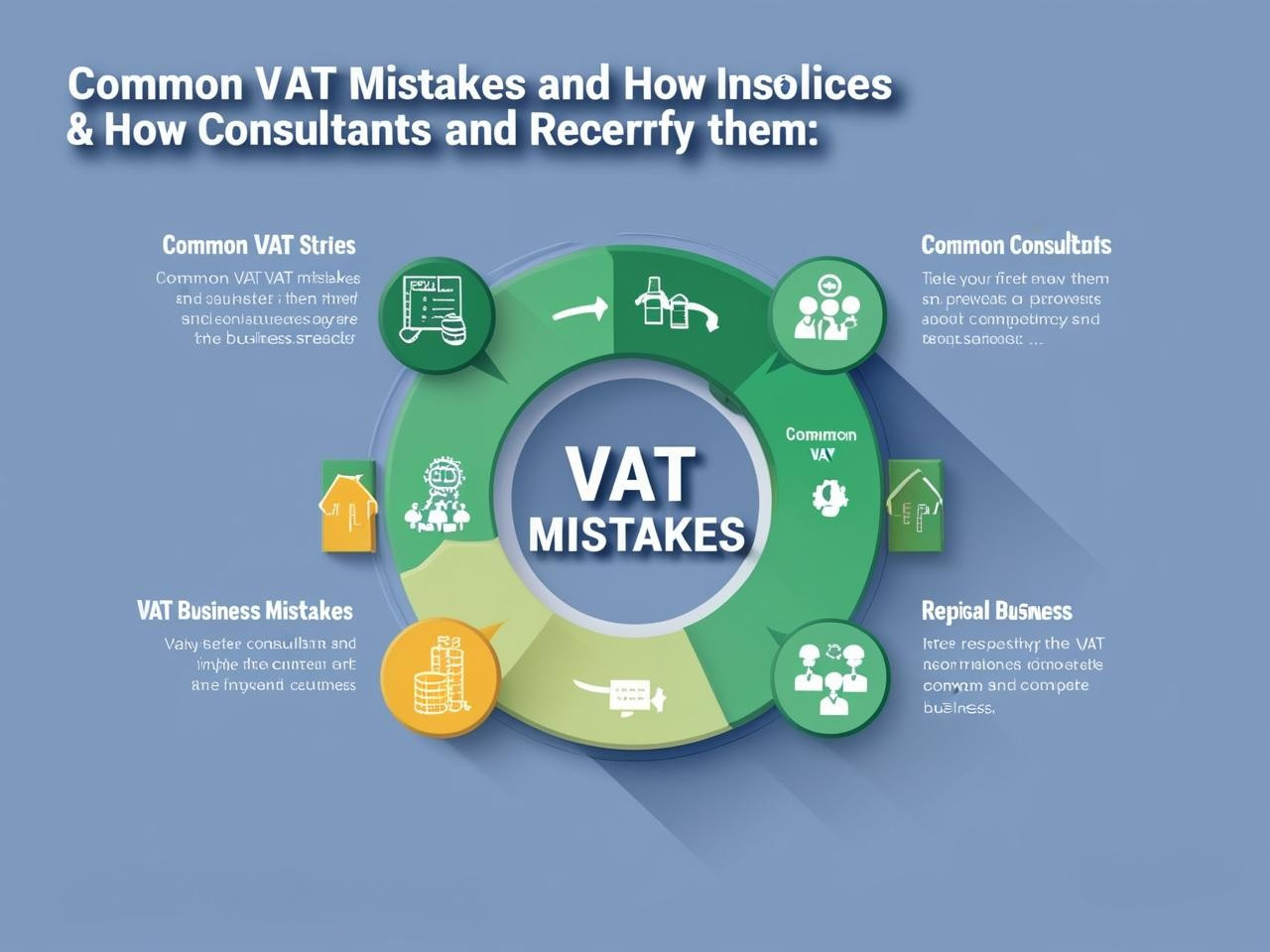Common VAT Compliance Mistakes Businesses Make (And How Consultants Fix Them)

Ensuring VAT compliance is crucial for businesses operating in Dubai. However, many companies unknowingly make VAT-related mistakes that can lead to penalties, fines, and reputational risks. These errors often arise from a lack of understanding of UAE tax regulations or mismanagement of financial records.
In this blog, we’ll highlight the most common VAT compliance mistakes businesses make and explain how VAT consultants help rectify these issues to ensure compliance.
Common VAT Compliance Mistakes in Dubai
1. Incorrect VAT Registration
Some businesses delay or overlook their VAT registration obligations. Companies that meet the AED 375,000 annual turnover threshold must register for VAT.
How Consultants Fix It:
* VAT consultants assess your business turnover and guide you through the registration process.
* They ensure all required documents are submitted correctly to avoid delays or rejection.
2. Miscalculating VAT Amounts
Errors in calculating VAT on sales, purchases, and expenses are common. Miscalculations can result in underpayment or overpayment, increasing the risk of penalties.
How Consultants Fix It:
* VAT consultants implement accurate calculation methods and reliable accounting systems to ensure VAT amounts are correctly reported.
3. Late VAT Return Filing
Failing to file VAT returns on time can lead to significant fines. The FTA imposes strict deadlines for businesses to submit their VAT returns.
How Consultants Fix It:
* VAT consultants create structured timelines to ensure your returns are submitted promptly.
* They proactively remind businesses about upcoming deadlines.
4. Incorrect Invoice Formatting
Invoices that lack essential details — such as TRN numbers, VAT rates, or invoice dates — can be considered invalid by the FTA.
How Consultants Fix It:
* VAT consultants ensure all invoices are formatted according to FTA guidelines.
* They train staff to prepare compliant invoices for future transactions.
5. Poor Record-Keeping
Incomplete or disorganized financial records can cause discrepancies during VAT audits. The FTA requires businesses to maintain records for at least 5 years.
How Consultants Fix It:
* VAT consultants set up efficient record-keeping systems that organize invoices, receipts, and transaction records.
* They ensure all financial data is securely stored and easily accessible.
6. Failing to Account for Zero-Rated and Exempt Supplies
Some businesses mistakenly apply standard VAT rates to zero-rated or exempt transactions, leading to errors in their VAT returns.
How Consultants Fix It:
* VAT consultants identify which transactions qualify for zero-rated or exempt status and ensure accurate reporting.
7. Ignoring Reverse Charge Mechanism (RCM)
Businesses importing services often overlook the Reverse Charge Mechanism, which shifts VAT liability from the supplier to the buyer.
How Consultants Fix It:
* VAT consultants ensure your business correctly applies the reverse charge mechanism and reports it in VAT returns.
8. Overlooking Input Tax Claims
Businesses often miss opportunities to reclaim input VAT on eligible expenses, resulting in higher costs.
How Consultants Fix It:
* VAT consultants identify valid input VAT claims to ensure your business reclaims all allowable expenses.
9. Misinterpreting VAT Penalties and Fines
Failing to understand FTA penalties can worsen compliance issues. Businesses may unintentionally ignore or incorrectly respond to fines.
How Consultants Fix It:
* VAT consultants provide expert guidance on penalty resolutions and assist in submitting appeals where applicable.
How Young and Right Can Help
At Young and Right, we specialize in resolving VAT compliance issues and ensuring businesses meet UAE tax regulations.
1. VAT Registration Support
Our consultants assess your business structure, ensuring you register for VAT at the right time and with accurate documentation.
2. Accurate VAT Calculation
We implement robust accounting systems to ensure all VAT calculations are precise and error-free.
3. Timely VAT Return Filing
Our experts manage your VAT filing deadlines, ensuring accurate and punctual submissions to the FTA.
4. Invoice Review and Correction
We assist in revising invoices to meet FTA requirements and train your team to create compliant invoices.
5. Efficient Record-Keeping Systems
Our consultants establish organized financial record systems, ensuring your data is secure, accessible, and audit-ready.
6. Expert Guidance on VAT Disputes
If your business faces penalties, our team provides strategic solutions to resolve disputes efficiently and minimize financial impact.
Conclusion
Mistakes in VAT compliance can be costly for businesses in Dubai. By partnering with experienced VAT consultants like Young and Right, you can avoid common errors, improve your financial processes, and ensure full compliance with UAE tax laws.
